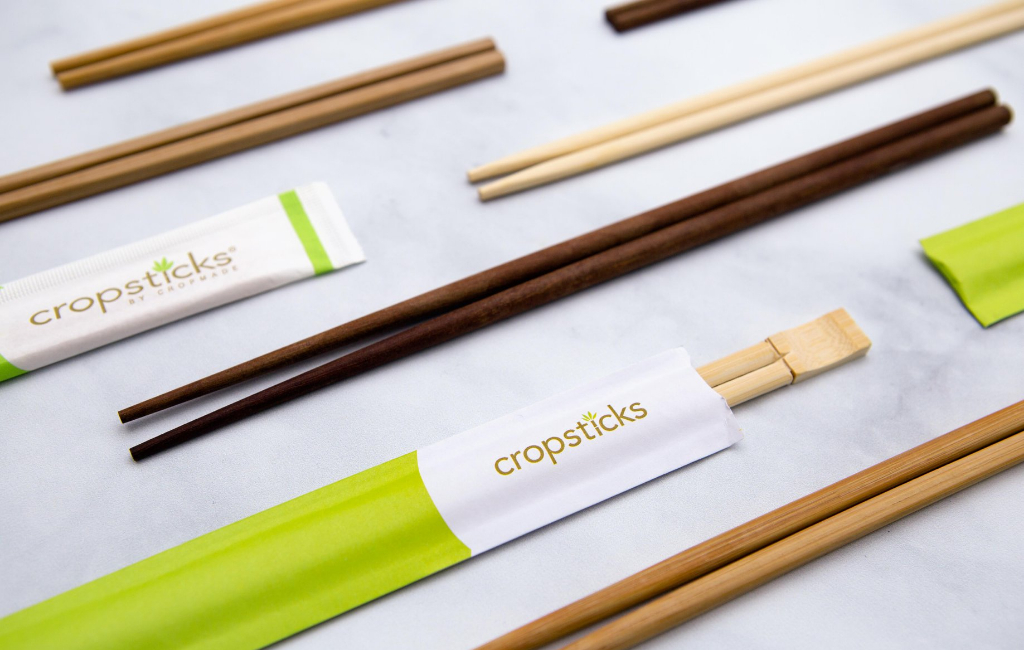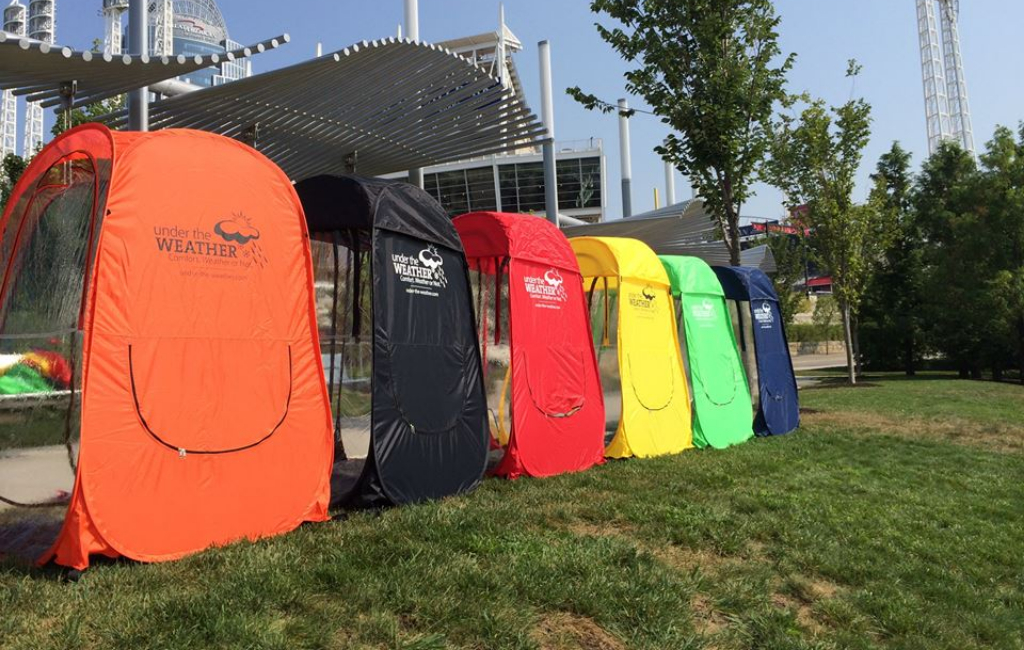Seedsheets Garden Kits


DEAL
EPISODE SUMMARY
🕓 Air Date: April 7, 2017
Asking For:
$500,000 for 10%
Investor:
Lori Greiner
Deal:
$500,000 for 20%
PRODUCT SUMMARY
Seedsheet is a gardening innovation that simplifies the process by providing a weed-blocking fabric embedded with dissolvable pouches containing soil and organic, non-GMO seeds, allowing anyone to become a successful farmer.
WATCH HERE
IN A RUSH?
Click these to jump to the section you want to read.
Background Story
Seedsheet, a gardening innovation hailing from Middlebury, Vermont, was founded by Cameron Mackugler, a Vermontrepreneur with a unique background in architecture and environmental studies. Mackugler’s journey into the world of agriculture began during a summer spent house-sitting on an 80-acre dairy farm. This unconventional experience provided him access to a magnificent garden that was meticulously organized, with each plant perfectly spaced apart. Inspired by the farm’s efficient gardening practices and armed with an architect’s perspective, Mackugler contemplated how to approach agriculture differently. This moment of reflection led to the inception of Seedsheet. His vision was to simplify the complex world of gardening, making it accessible to individuals with varying levels of expertise.
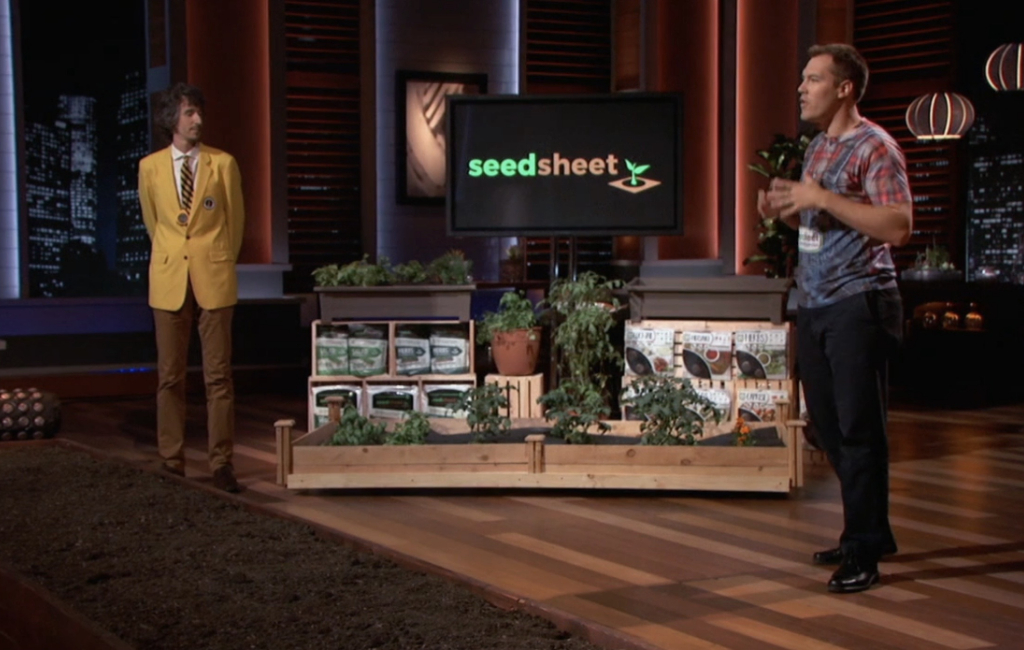
Seedsheet emerged as a groundbreaking solution that combined horticulture with cutting-edge technology, turning anyone into a successful farmer without the need for traditional farming attire. The product itself features a weed-blocking fabric meticulously embedded with dissolvable pouches. Each pouch contains a buffer of soil and organic, non-GMO seeds. The innovative gardening solution allows users to effortlessly transform their windowsills into personalized farmer’s markets. The dissolvable pouches sprout seeds when water is added, eliminating the need for intricate gardening processes.
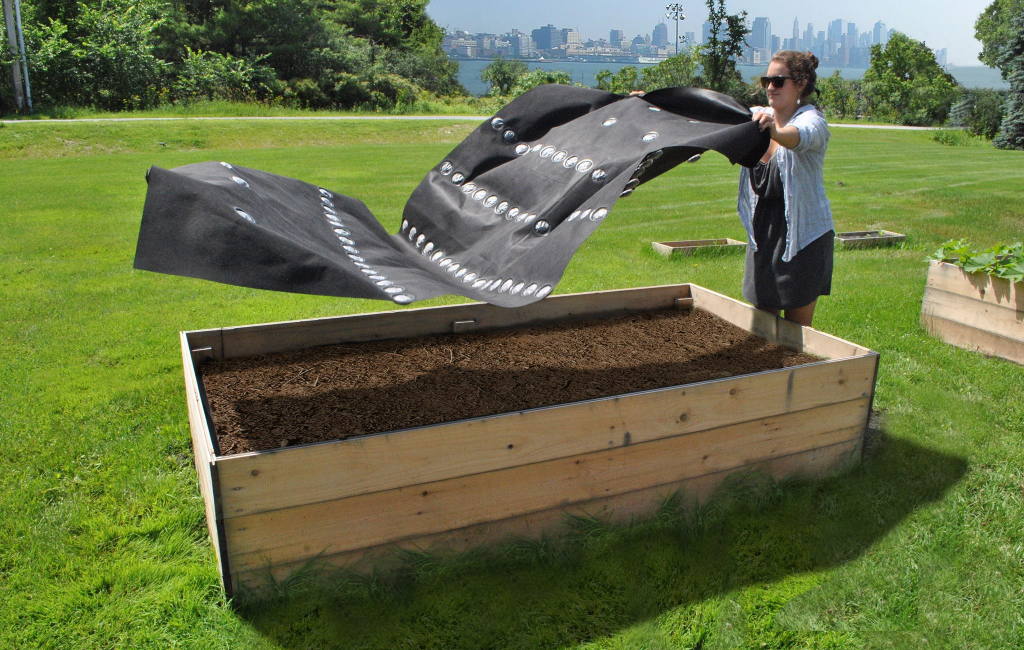
Seedsheet, under Mackugler’s guidance, aims to revolutionize how people engage with agriculture. By combining Mackugler’s architectural insight with a passion for environmentally conscious and healthy living, Seedsheet stands as a testament to the founder’s commitment to making gardening enjoyable, convenient, and accessible to everyone. The company’s headquarters in Vermont reflects its roots in a region known for its agricultural heritage and commitment to sustainable living.
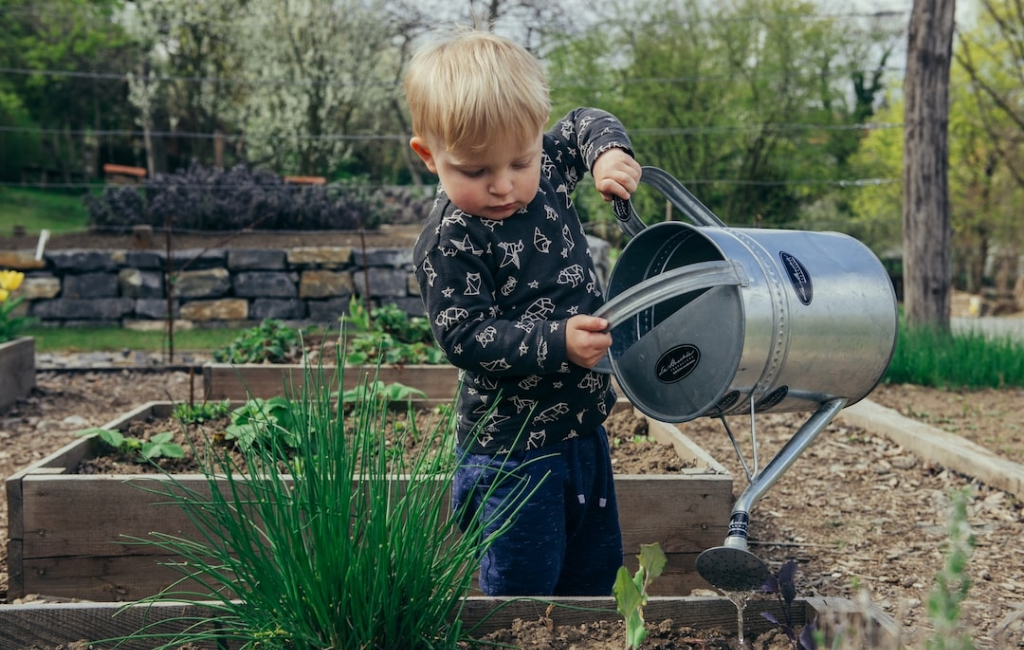
The Product
Seedsheet is a revolutionary gardening solution designed to simplify the process of growing your own food, making it accessible to individuals of all gardening skill levels. The product is a meticulously crafted weed-blocking fabric embedded with dissolvable pouches, each containing a carefully measured mixture of soil and organic, non-GMO seeds. This innovative combination allows users to transform their spaces into flourishing gardens with minimal effort.
The process is user-friendly: unroll the Seedsheet on prepared soil, add water, and witness the magic unfold as the dissolvable pouches release seeds that sprout into healthy, homegrown plants. Whether used in a backyard garden, on a windowsill, or in containers, Seedsheet adapts to various gardening environments.
Seedsheet offers both pre-portioned recipe kits and customizable options, catering to diverse gardening preferences. Users can choose from kits featuring herbs, salad greens, hot sauce ingredients, cocktails, and more. The product caters to those seeking fresh, homegrown produce without the need for extensive gardening knowledge or traditional farming equipment.
The benefits of Seedsheet include a hassle-free gardening experience, elimination of the guesswork associated with planting, and the assurance of organic, non-GMO produce. The product can be purchased online through the company’s website, providing a convenient avenue for customers to explore and purchase Seedsheet kits. With retail distribution also underway, Seedsheet is priced competitively, with options ranging from $14.99 for smaller kits to accommodate different garden sizes, ensuring accessibility for a wide range of consumers.
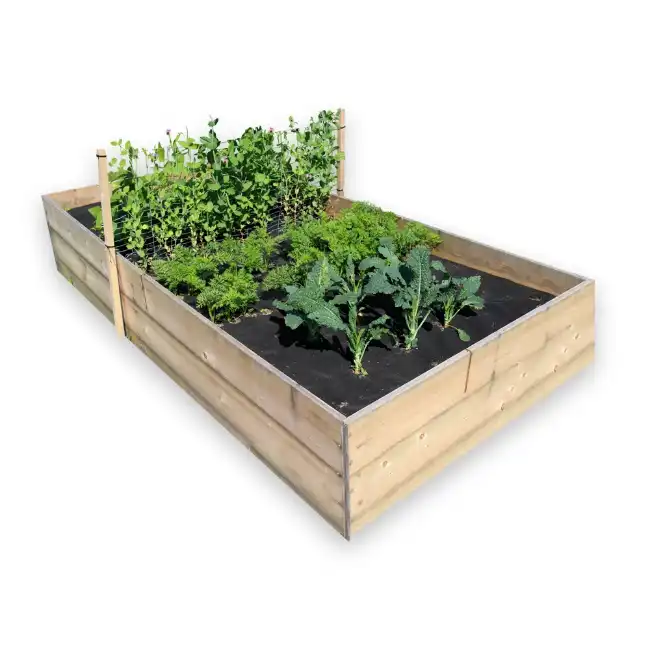
How It Went
The company’s position before Shark Tank
Seedsheet, a company with a 20-month track record, has exhibited a promising performance in the competitive gardening and agricultural market. The company’s total sales to date stand at $156,000, a noteworthy achievement considering it has only been in business for one gardening season. Seedsheet strategically launched in 46 Home Depot stores, marking a significant step towards retail distribution.

The company has positioned itself to target a specific demographic, focusing on new gardeners, particularly the fast-growing Millennial segment. As for funding, the episode did not provide explicit details on the current funding status. However, the pitch sought a $500,000 investment for 10% equity, indicating a valuation of the company at $5 million. The company’s decision to launch in 46 Home Depot stores indicates a potential collaboration with this retail giant.
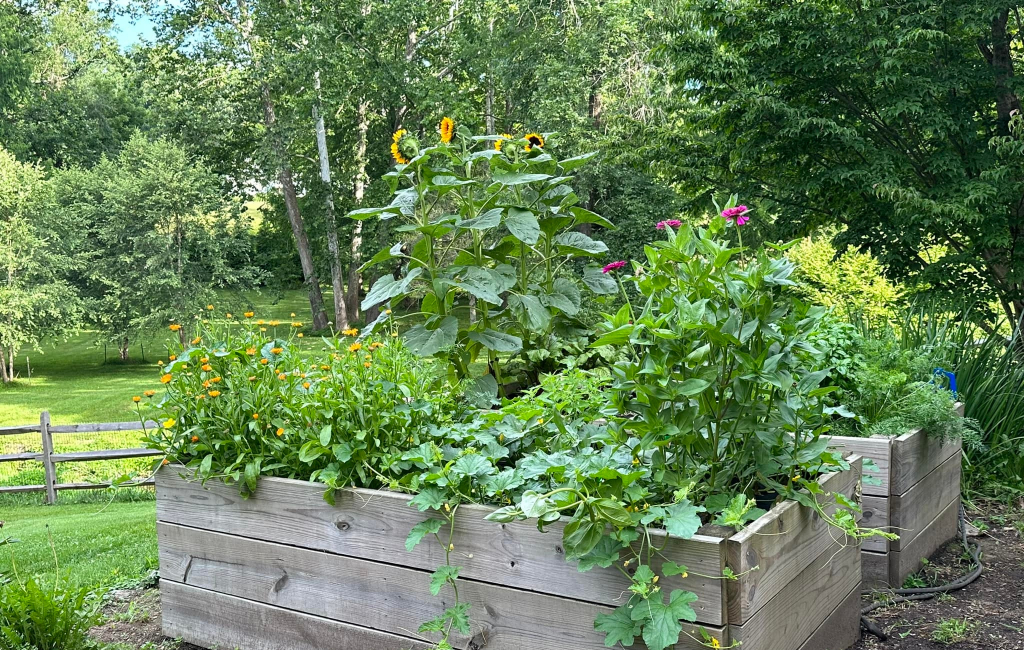
The distribution strategy includes both online and retail channels, with a focus on simplifying the gardening experience for beginners. The deal with Lori brings not only capital infusion but also the strategic guidance and experience of a Shark with expertise in home and garden products. Seedsheet’s performance and trajectory indicate a promising future as it continues to innovate and make gardening accessible to a broader audience.
The Negotiations:
The negotiations for Seedsheet on Shark Tank were dynamic and featured multiple offers, creating a competitive environment among the Sharks. Founder Cameron Mackugler initially sought a $500,000 investment for a 10% equity stake in his gardening innovation company. The Sharks were immediately intrigued by the product’s potential, with Lori Greiner and Mark Cuban jointly extending an offer of $500,000 for a 20% equity share. However, this initial deal faced a twist when Kevin O’Leary entered the fray with an alternative proposition—$500,000 for a 12.5% equity stake, seeking a more substantial ownership share in the company.
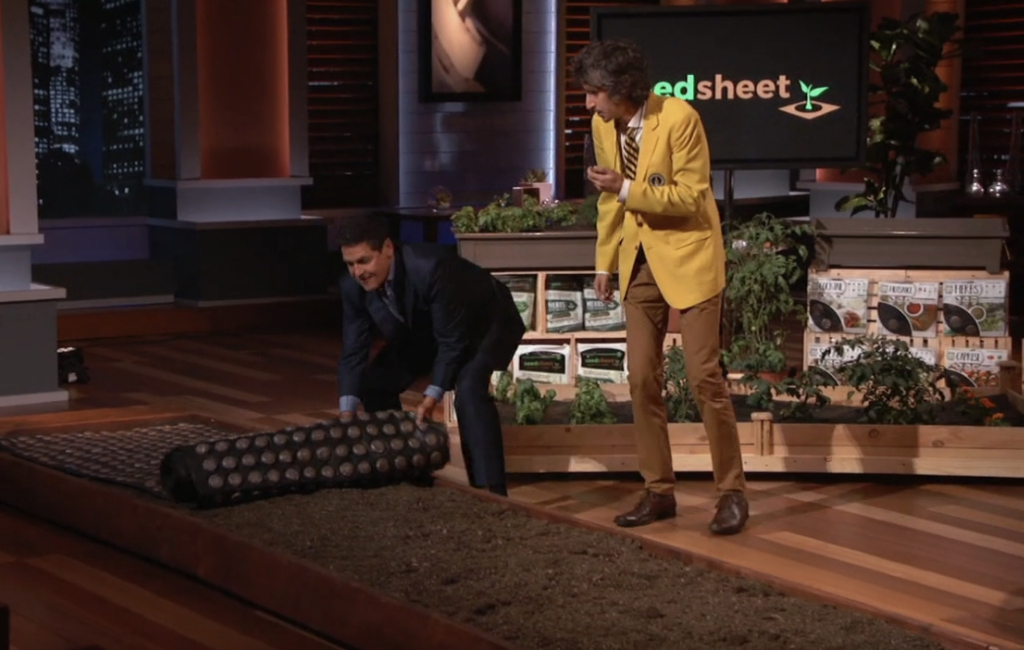
As the negotiation progressed, Mark Cuban decided to bow out, expressing concerns about the challenges associated with retail. This left Lori and Kevin in contention, with Lori standing firm on her $500,000 offer for 20% equity. Kevin, attempting to sweeten the deal, proposed a 12.5% equity share, further intensifying the negotiation. In a strategic move, Lori leveraged her experience in the home and garden product industry, emphasizing her ability to propel Seedsheet through platforms like QVC.

Despite Kevin’s attempts to secure a more substantial stake, Lori held her ground, and Cameron eventually accepted her offer of $500,000 for a 20% equity share in Seedsheet. The negotiation showcased the Sharks’ eagerness to invest in Seedsheet, with each Shark bringing a unique perspective to the table. Ultimately, the deal with Lori not only secured the necessary capital for Seedsheet’s growth but also provided valuable expertise and strategic guidance for the company’s future success.






